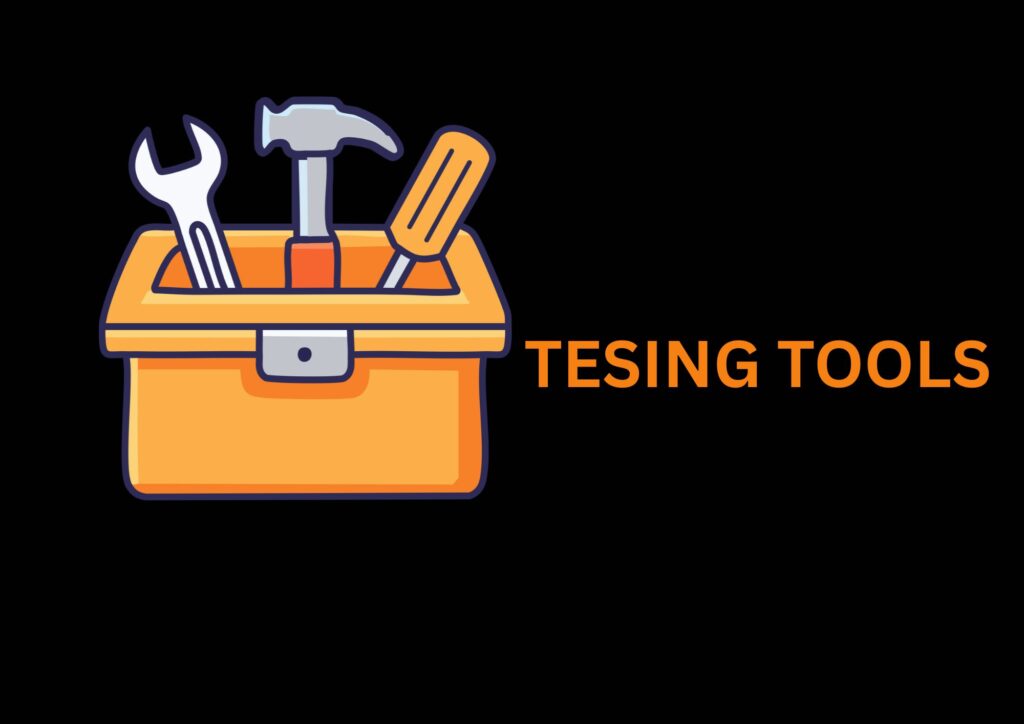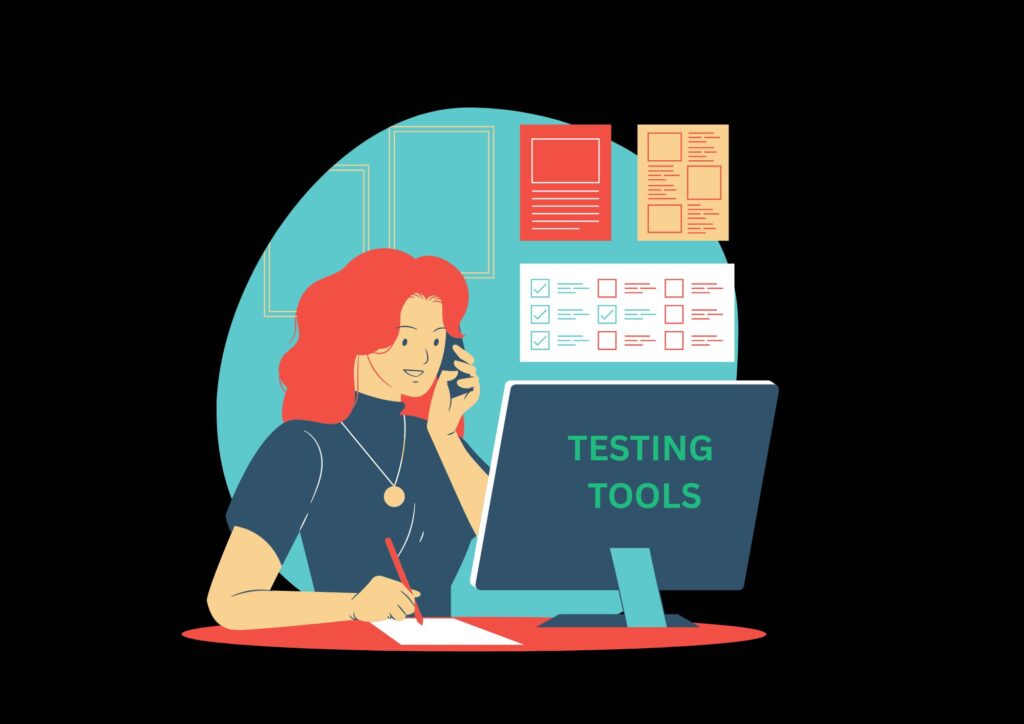Testing Tools Training In Hyderabad
The Software Testing Tools Training In Hyderabad is designed to provide a comprehensive understanding of manual and automation testing methodologies, tools, and best practices used in the software development lifecycle. This Software Testing Tools Course equips learners with practical skills in both functional and non-functional testing, using industry-standard tools such as Selenium, JIRA, TestNG, QTP/UFT, LoadRunner, Postman, and Jenkins.
Participants will learn how to design and execute test cases, manage defects, write automation scripts, and implement testing frameworks for web and mobile applications. The course also covers Agile testing practices, continuous integration, and test reporting.
Ideal for freshers, QA professionals, and developers aiming to shift into testing roles, this program ensures learners are ready for real-world software testing challenges with hands-on training and real-time projects.

Course Overview: Testing Tools Training In Hyderabad
The Software Testing Tools Training In Hyderabad is a job-oriented training program designed to help learners gain expertise in both manual and automation testing using top industry tools. It is ideal for aspiring QA engineers, freshers, and IT professionals seeking to enhance their testing skills.
Key Highlights: Software Testing Tools Course
Covers both Manual & Automation Testing concepts from basics to advanced level
Hands-on training with tools like Selenium WebDriver, JIRA, TestNG, QTP/UFT, LoadRunner, Jenkins, and Postman
Focus on real-time scenarios, test case writing, bug tracking, and test execution
Learn STLC, SDLC, Agile Testing, and best QA practices
Implement test automation frameworks and integrate with CI/CD tools
Build automation scripts for web, mobile, and API testing
Includes real-world projects, mock interviews, and certification guidance
Suitable for freshers, developers, and non-programmers aiming to enter QA roles
Objectives of the Testing Tools Training In Hyderabad
✅ To provide a strong foundation in software testing fundamentals, techniques, and best practices
✅ To train students in both Manual Testing and Automation Testing methods
✅ To develop the ability to write, execute, and manage effective test cases and test scenarios
✅ To equip learners with hands-on experience in industry-standard tools like Selenium, JIRA, TestNG, QTP/UFT, LoadRunner, Postman, and Jenkins
✅ To help students understand and implement the Software Development Life Cycle (SDLC) and Software Testing Life Cycle (STLC)
✅ To introduce real-time defect tracking, bug life cycle management, and reporting techniques
✅ To build the capability to develop and maintain automation test scripts for web and API testing
✅ To prepare students for working in Agile and DevOps environments with practical exposure to CI/CD tools
✅ To enhance employability through project-based learning, mock interviews, and placement support
✅ To prepare candidates for QA certifications and roles such as Test Engineer, QA Analyst, or Automation Tester
Course Curriculum: Testing Tools Training In Hyderabad
Module 1: Introduction to Software Testing
Basics of software testing and QA process
Importance of testing in SDLC
Types of testing: manual vs automation
Levels of testing: unit, integration, system, acceptance
Testing methodologies: Waterfall, Agile, V-Model
Understanding STLC (Software Testing Life Cycle)
Test plan, test strategy, test case, and defect life cycle
Roles and responsibilities of a tester
Module 2: Manual Testing
Requirement analysis and test planning
Writing test cases and test scenarios
Test execution and status reporting
Bug/defect reporting using real-time tools
Test case review and traceability matrix
Hands-on exercises on live web applications
Smoke testing, sanity testing, regression testing
Black box and white box testing techniques
Module 3: Test Management with JIRA
Introduction to JIRA and Agile boards
Creating user stories, tasks, and epics
Managing test cases and defects
Using plugins like Zephyr for test management
Sprint planning, backlog grooming, and burndown charts
Workflow customization and reporting
Module 4: Automation Testing with Selenium
Selenium architecture and components
Selenium WebDriver setup and configuration
Locators and element handling techniques
Writing test scripts using Java or Python
Handling alerts, dropdowns, pop-ups, frames
Data-driven testing using Excel or Properties file
TestNG integration and test suite creation
Cross-browser and parallel testing
Module 5: TestNG Framework
Overview of TestNG
Annotations, assertions, and priorities
Parameterization and data providers
Grouping and parallel execution
Generating HTML reports
Exception handling and logging
Module 6: Functional Testing with QTP/UFT
- Introduction to QTP/UFT
Record and playback feature
Object Repository and checkpoints
Descriptive programming
VBScript basics for QTP scripting
Parameterization and output values
Real-time scripting for desktop app
Module 7: API Testing with Postman
Introduction to APIs and web services
REST vs SOAP concepts
Using Postman for API testing
GET, POST, PUT, DELETE methods
Writing test scripts and assertions in Postman
Automating API tests using collections
Status codes, headers, and authentication
Module 8: Performance Testing with LoadRunner (or JMeter Optional)
Introduction to performance testing
LoadRunner architecture and components
Creating virtual users and scripts
Running load tests and analyzing results
Bottleneck identification and reporting
JMeter basics (optional alternative to LoadRunner)
Module 9: CI/CD with Jenkin
Introduction to DevOps and CI/CD
Jenkins setup and configuration
Creating and scheduling jobs
Integrating Selenium with Jenkins
Triggering test automation via GitHub
Reporting and test result tracking
Module 10: Project & Final Assessment
Real-time project with manual and automation test cases
Test planning, design, and execution
Bug tracking and reporting using JIRA
Automation scripting and framework usage
Final project presentation and feedback
Resume review and job interview preparation
Who is Eligible for the Software Testing Tools Course?
The SoftwareTesting Tools Training In Hyderabad is designed to be beginner-friendly and suitable for a wide range of learners. The following individuals are eligible:
Fresh Graduates – Especially those from B.Tech, B.Sc, BCA, or MCA backgrounds looking to start a career in software testing.
Manual Testers – Professionals who want to upskill by learning automation and advanced testing tools.
Developers – Software developers interested in understanding testing frameworks and improving code quality.
IT Professionals – Those looking to switch their domain to QA or enhance their testing knowledge.
Non-IT Professionals – With basic computer knowledge and interest in software quality assurance.
Job Seekers – Anyone aiming for a job in quality assurance, test automation, or related IT fields.
Freelancers & Consultants – Who want to add software testing to their service offerings.

Benefits of the Software Testing Tools Course
Comprehensive skill development in both manual and automation testing, covering all phases of the STLC
Hands-on training with industry-demanded tools such as Selenium, JIRA, QTP/UFT, Postman, LoadRunner, TestNG, and Jenkins
High demand in the IT industry, ensuring a stable and growing career path in software testing
No programming background required, making it accessible for non-technical graduates
Real-time project exposure that simulates actual testing environments used in companies
Placement assistance with resume building, mock interviews, and job referrals
Career flexibility with opportunities for roles like Manual Tester, Automation Engineer, QA Analyst, and API Tester
Strong foundation for advanced roles in DevOps, performance testing, and test architecture
Certification support to prepare for global exams such as ISTQB, Selenium Tester, and Agile Tester
Training aligned with Agile and DevOps practices, including CI/CD workflows
Job Roles After Completing the Software Testing Tools Course
Manual Tester
Responsible for writing test cases, executing tests manually, and identifying bugs in software applications.Automation Test Engineer
Develops and maintains automated test scripts using tools like Selenium, TestNG, or UFT.Quality Assurance (QA) Analyst
Ensures product quality through a combination of manual and automated testing, defect tracking, and reporting.Software Test Engineer
Executes functional, regression, integration, and system testing as part of the development cycle.API Tester
Specializes in testing APIs and web services using tools like Postman and REST-assured.Performance Tester
Focuses on evaluating application speed, responsiveness, and stability using tools like LoadRunner or JMeter.Mobile App Tester
Tests Android and iOS applications for functionality, usability, and performance.Test Lead / QA Lead
Manages a team of testers, coordinates test activities, and oversees quality assurance processes.DevOps Test Engineer
Works with CI/CD pipelines to automate test execution and integrate testing with development workflows.SDET (Software Development Engineer in Test)
A hybrid role that involves both development and testing, including writing automation frameworks and utilities.
